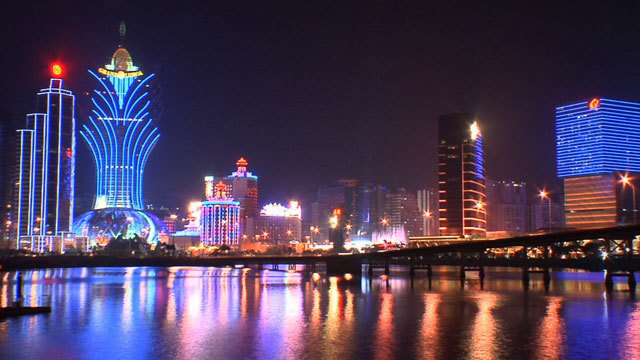






Macau Casinos Could Be 'Collateral Damage' From Trade War, Expert SaysEscalating Tensions Between U.S., China Could Impact Gambling |
|
|

Headlines pertaining to Russia and Iran have shifted some foreign relations focus away from the ongoing trade war with China, but that doesn’t mean the situation is stable.
President Donald Trump, a former Atlantic City casino owner, indicated this month that he’s willing to impose tariffs on all Chinese goods imported to the United States. The value of those products is roughly $500 billion, per the South China Morning Post. So far, only a fraction of that sum has been subjected to tariffs in the escalating trade war between the two economic powerhouses.
Depending on where the situation is headed, the trade war could spell trouble for casinos in Macau, many of which are operated by U.S.-based casino giants. Macau, home to more than three dozen casinos, is the world’s largest gambling hub.
The Trump Administration announced Tuesday that it wants to offer a $12 billion aid package to U.S. farmers hurt by China’s retaliatory tariffs. The president is ready to dig in.
According to prominent gambling law scholar I. Nelson Rose, there is a worst-case scenario that could be devastating to American casino industry investments in Macau, the only place in China with legal gambling. “[People’s Republic of China] officials might openly say that Trump has started a trade war, and it is too bad that Wynn, Adelson’s Las Vegas Sands, and MGM are collateral damage,” Rose wrote in a recent blog post.
 MGM, Sands and Wynn all have their respective Macau casino approvals up for renewal within the next several years, which also makes them vulnerable, according to Rose. Prior to outside investment in Macau, the local casino industry was controlled by just a single company.
MGM, Sands and Wynn all have their respective Macau casino approvals up for renewal within the next several years, which also makes them vulnerable, according to Rose. Prior to outside investment in Macau, the local casino industry was controlled by just a single company.
“[I]f the [casino] concessions are put up for bid, there will also be a lot of giant Chinese companies, some having nothing to do with gaming, which would like to take over these enormously successful casinos,” wrote Rose, who teaches a post-grad class in Gaming Law at the University of Macau.
It doesn’t help that casino magnate Sheldon Adelson and former gambling boss Steve Wynn are political allies of Trump, he added, underscoring the fact that both Macau and Beijing have “the legal right to do just about anything with these concessions.”
“The Macau Chief Executive has the power to extend them one or more year at a time, but only up to five years,” Rose said. “With or without these extensions, Macau law expressly requires that the concessions be ‘rebid.’ This does not necessarily mean the bidding will be open to other potential operators. Nor does it mean that the current operators will automatically be renewed. Normally, when casino licenses come up for renewal, the government may make a show of threatening to open the process to outside bidders. But the end result is almost always that the current operators are allowed to continue, but have to pay significantly for the privilege.”
However, Trump is a so-called “wild card” and Beijing could take drastic measures. Still, Rose isn’t ready to say the sky is falling for the Macau gambling market. The local casino industry is on a 23-month winning streak after a massive market contraction thanks to a 2014 Beijing-led anti-corruption campaign that restricted the flow of money to the gambling hub.
“I do not believe the Macau government would refuse to renew the American casino companies’ concessions,” he said. “Wynn, Adelson and MGM have spent billions building not just casinos but integrated resorts. No Western company would ever spend another cent in China if these investments are lost through government action.”
Stock prices for Wynn and Sands were both down about 1.8 percent over the past month, while MGM’s share value has increased about five percent. It’s worth noting that the latter has been relatively active lately in the U.S. casino market, with a nearly $1 billion MGM-owned casino in Massachusetts slated to open later this summer.
